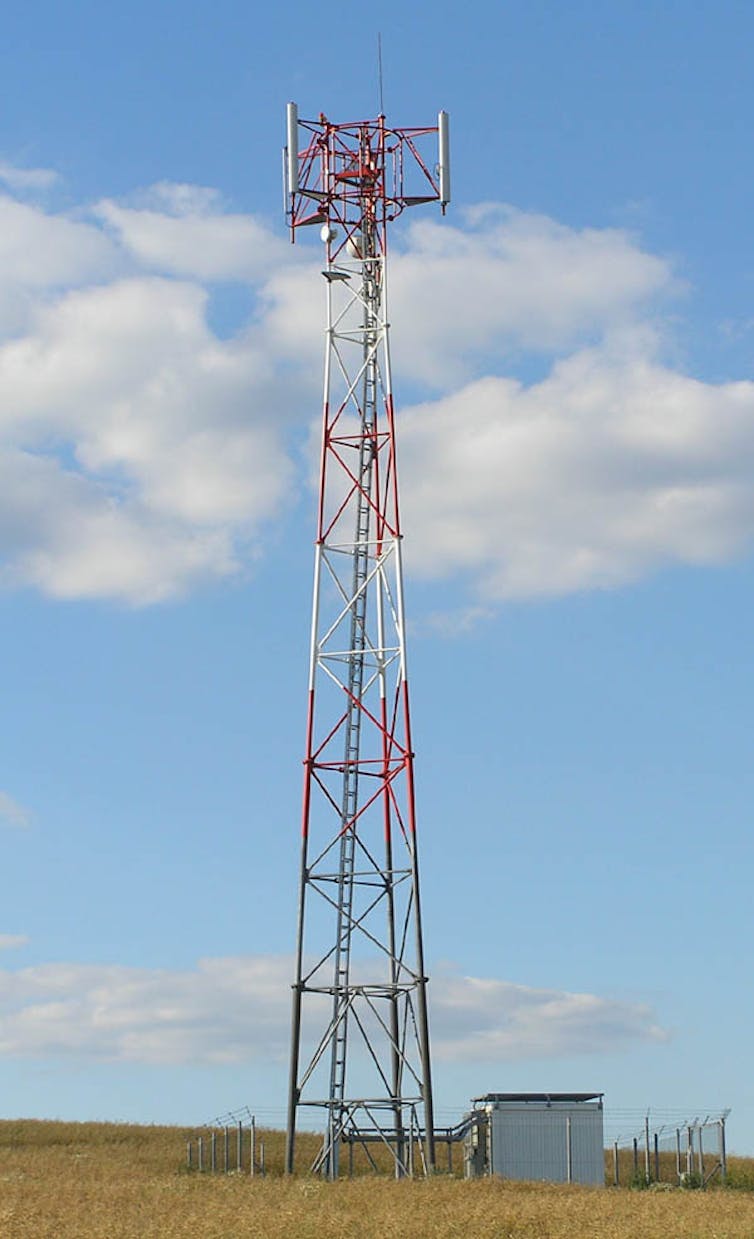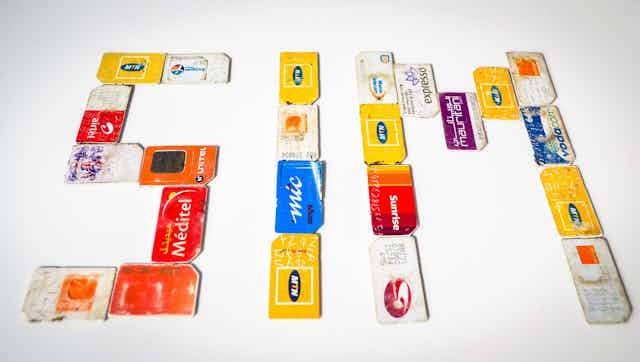This is an article from Curious Kids, a series for children. The Conversation is asking kids to send in questions they’d like an expert to answer. You might also like the podcast Imagine This, a co-production between ABC KIDS listen and The Conversation, based on Curious Kids.
My name is Leo. I am 5 years old and I live in Sydney. My question is how do SIM cards make a phone work? Thanks. – Leo, age 5, Sydney.
Thank you for your fantastic question, Leo.
After you buy a mobile phone, you can’t make calls with it until you connect it to a mobile phone network. The three networks we have in Australia are owned and operated by Telstra, Optus and Vodafone.
When you choose a network, you usually sign up to an account plan with that company (for example, agreeing to pay a certain amount per month).
Then, you need to activate the plan (switch it on). The Subscriber Identity Module (SIM) card is how that is done.
SIM cards link a certain account to a certain phone; they tell the phone network company which account is joined up to which person’s phone. Phone network companies usually call customers “subscribers”. A SIM card is a customer card that lets your phone connect to the network.
You may have noticed base station towers the phones connect to. They look like this:

These towers allow us to make phone calls.
Read more: Time to disconnect: why the SIM card has had its day
Mobile phones allow us to do many other things too. Apart from making calls to people on our network, on other networks and in other countries, we can use phones to connect to the internet. We can message each other. And we can keep an eye our accounts to see how much money we are spending. All this information is stored in our account details. And the SIM card is an important part of keeping track of your account details.
Account details include your address, how much you’re using the phone to make calls or use the internet, the number of messages you’ve sent, and what type of plan you are on.
This information is not stored on the phone itself, and it’s not on the SIM card either. It is stored in databases (a series of connected computers) in the network.
So, to sum up: how does the network company know which phone is connected to what account? The SIM card tells them! Otherwise the network company would not know who to send the bill to.
The SIM card contains an identifier, the International Mobile Subscriber Identifier (IMSI) that identifies your handset (your phone) to the network. The IMSI is how the network links what you do on your handset to your account.
SIM cards contain a computer chip that can do some simple mathematics and store some information (what we call data). The SIM also stores SMS messages.
It is also used to make sure no one can eavesdrop on your communication between the phone and the network. All messages between the phone and network are encrypted (that means they are in a secret code).
Encryption uses a secret number known as a “key” to encrypt and decrypt messages. The key is also used to prove that this particular phone is allowed to use the network. Security keys are stored in the SIM card.
So next time you see a SIM card, remember that such a little thing can do many big jobs. SIM cards link accounts to handsets. They keep communications private. They store messages. Although small and simple, they are a big part of modern mobile phone systems.

Read more: Curious Kids: Why do birds sing?
Hello, curious kids! Have you got a question you’d like an expert to answer? Ask an adult to send your question to us. They can:
* Email your question to curiouskids@theconversation.edu.au
* Tell us on Twitter

Please tell us your name, age and which city you live in. You can send an audio recording of your question too, if you want. Send as many questions as you like! We won’t be able to answer every question but we will do our best.

